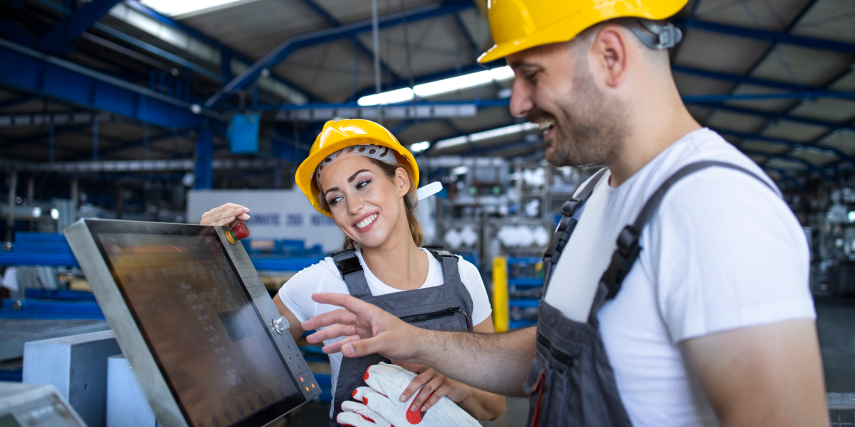Introduction
In the ever-evolving landscape of manufacturing and industrial automation, the role of technology cannot be understated. With the rapid advancement of Industry 4.0, the demand for robust, reliable, and high-performance computing solutions has skyrocketed.
Enter the industrial computer, a cornerstone of modern manufacturing processes, which plays a pivotal role in ensuring efficiency, precision, and productivity. In this article, we will delve into the world of industrial computers and explore how they are transforming the industrial landscape.
What is an Industrial Computer?
Industrial computers are specialized computing devices designed to operate in harsh and demanding environments commonly found in industrial settings. Unlike conventional desktop or personal computers, industrial computers are built to withstand extreme temperatures, vibrations, dust, moisture, and electromagnetic interference.
They are the backbone of automation, control, and monitoring systems in various industries such as manufacturing, oil and gas, healthcare, transportation, and agriculture.
Key Features and Benefits
Robust Construction: Industrial computers are built to withstand the toughest conditions. They are often housed in rugged enclosures with protective measures against dust, water, and temperature fluctuations, ensuring uninterrupted operation even in challenging environments.
Reliability: Reliability is paramount in industrial settings. These computers are equipped with components tested for longevity and stability, reducing downtime and maintenance costs.
Performance: Industrial computers come in a range of configurations, from entry-level to high-performance models. They can handle complex calculations and data processing tasks, making them ideal for real-time control and monitoring applications.
Expandability: To accommodate various industrial applications, industrial computers often feature multiple expansion slots, allowing users to add specialized interfaces, graphics cards, or additional storage as needed.
Compatibility: Industrial computers are designed to work seamlessly with a wide array of industrial hardware and software, making integration into existing systems straightforward.
Applications of Industrial Computers
Manufacturing: Industrial computers play a vital role in modern manufacturing processes, optimizing production lines, monitoring quality control, and ensuring efficient resource allocation.
Process Control: Industries such as petrochemical, water treatment, and energy rely on industrial computers to manage and monitor complex processes with precision and consistency.
Healthcare: In the medical field, industrial computers are used for diagnostic equipment, patient monitoring, and data management, contributing to improved patient care.
Transportation: In the automotive and aviation industries, industrial computers are crucial for navigation, communication, and engine control systems.
Agriculture: Modern agriculture benefits from industrial computers in precision farming, enabling automated machinery and data-driven decision-making.
Logistics and Warehousing: Industrial computers enhance logistics operations through inventory management, order processing, and automation of material handling equipment.
Future Trends and Innovations
The world of industrial computers is continually evolving, keeping pace with the rapid advancements in technology. Some key trends and innovations to watch for include:
- Edge Computing: Industrial computers are increasingly incorporating edge computing capabilities, allowing data processing to occur closer to the source, reducing latency and enhancing real-time decision-making.
- Artificial Intelligence (AI) Integration: AI is being integrated into industrial computers to enable predictive maintenance, quality control, and process optimization.
- Cybersecurity: With the growing threat of cyberattacks, industrial computers are adopting enhanced cybersecurity features to protect critical industrial systems from vulnerabilities and breaches.
- Sustainability: Industrial computers are becoming more energy-efficient and environmentally friendly, aligning with the global push for sustainability.
Conclusion
Industrial computers are the unsung heroes of the modern industrial landscape. Their robustness, reliability, and performance are indispensable in ensuring the efficiency and competitiveness of various industries.
As technology continues to advance, industrial computers will play an increasingly pivotal role in the transition towards smarter, more efficient, and sustainable industrial processes. In a world driven by automation and data, the industrial computer remains at the forefront of innovation, shaping the future of manufacturing and industrial automation.

